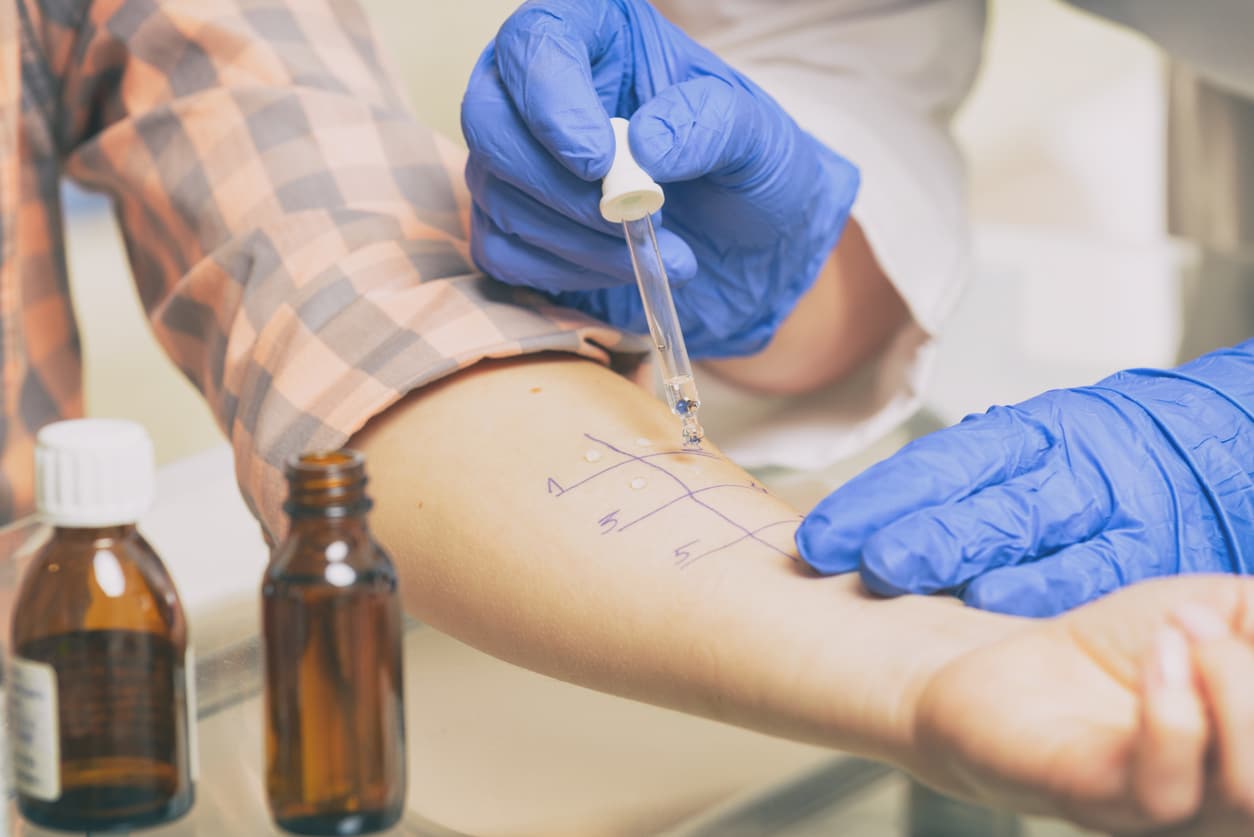Allergy symptoms like hives, itchy skin, sneezing, congestion, cough or watery eyes are unpleasant, and they’re made even more so if you don’t know what’s causing them. Skin prick and blood testing are two methods allergists use to identify the triggers leading to your symptoms.
Once you know the triggers, you can take steps to avoid them. Testing is especially important for severe reactions like anaphylaxis that can cause a drop in blood pressure, facial swelling, difficulty breathing and more. Let’s take a look at skin prick and blood testing to help you prepare for your allergy appointment.
Skin Prick Testing

Skin prick, also known as scratch testing, is the most common type of allergy testing. During the test, your allergist will prepare a solution with a small amount of an allergen and place it on the skin, usually on the arm. After placing the solution, they’ll use a needle to prick or scratch the area to introduce the allergens to your system.
If you’re allergic to the solution, your skin will swell or turn red. Your allergist will take a visual assessment of the reaction to determine if you’re allergic to the allergen. They’ll most likely test several allergens at once to rule out as many culprits as possible.
Blood Testing
Blood testing is usually performed as a follow-up to skin testing or as an alternative when an allergy is severe enough to make skin testing unsafe. During the test, your provider will use a thin needle to draw blood from a vein in your arm. They will send the blood to a lab to check for elevated levels of an antibody called immunoglobulin E (IgE). It may take a few days to get the results of a blood test because the lab needs time to process your sample.
There are a few factors that can make blood testing preferable to skin testing:
- You have a severe allergy
- You’re taking antihistamines, steroids or antidepressants
- You have certain skin conditions, asthma or heart conditions
How Do I Know Which Test Is Right for Me?
Your allergist will walk through your symptoms and medical history, including current medications, to determine which test is right for you. Depending on your symptoms, they may recommend further tests, including breathing, drug, food challenge or patch tests.
For more information on what these tests entail or to schedule an appointment with one of our allergists, contact Ear, Nose & Throat Associates today.